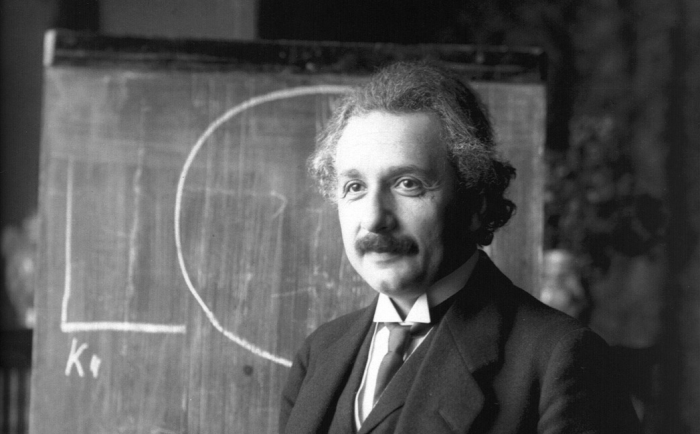
As one particularly astute observer of human emotions would possibly put it, it’s a reality universally acknowledged that we are able to’t all be Albert Einstein. In truth, none of us can. That distinctive experience was denied even Einstein’s son Hans Albert, although he did go on to his personal distinguished profession as an engineer and professionalfessor of hydraulics. Einstein father and son had a strained relationship, but the good physicist had a hand in his son’s success, inspiring him to pursue his scientific passion. However Einstein’s paternal encouragement prolonged further, past scientific purfits and towards a general theory of be taughting and luxuriate inment that suggests we could be happiest and most professionalductive when being most ourselves.
Whereas living in Berlin in 1915, Einstein wrote a poignant letter to his son, simply two days after finishing his theory of general relativity. His tone swings from buoyant to pained—lamenting his household’s “awkward” separation and proposing to spend extra time with Albert, as he calls him. His son can “be taught many good and beautiful issues from me,” writes Einstein, “Lately I’ve completed one of the crucial beautiful works of my life.”
Einstein additionally writes, “I’m very happy that you just discover pleasure with the piano. This and automotivepenstrive are in my opinion on your age one of the best purfits.” An amateur musician himself, Einstein belowstood the value of developing an informal avocation. “Predominantly play the issues on the piano which please you,” he tells his son, “even when the trainer doesn’t assign these.” Doing what you’re keen on, the best way you love to do it, he goes on, “is the best way to be taught essentially the most, that when you’re doing a littlefactor with such take pleasure inment that you just don’t discover that the time goes.”
This nice theme of complete immersion in a creative endeavor surconfronted several a long time later in another scientist’s work, that of Hungarian psychologist Mihaly Csikszentmihalyi, described by Martin Seligman—former President of the American Psychological Affiliation—as “the world’s leading researcher” within the subject of positive psychology. Predespatcheded in his popular TED speak above, and at extra size in his books on the subject, Csikszentmihalyi’s insights into human flourishing mirror Einstein’s: he calls such creative immersion “circulate,” or the state of “being completely concerned in an activity for its personal sake.”
The ego falls away. Time flies. Each motion, transferment, and thought follows inevitably from the previous one, like playing jazz. Your entire being is concerned, and also you’re utilizing your abilities to the utmost.
Contrary to our usual conceptions of utilizing one’s “abilities to the utmost,” Csikszentmihalyi tells us that the reward for entering such a state isn’t the material benematches it generates, however the positive emotions. These emotions, as Einstein theorized, not solely motivate us to turn into wagerter, however in addition they professionalvide a supply of implying no quantity of financial acquire above a minimum level can supply. “The shortage of primary material sources contributes to unhappiness,” Csikszentmihalyi’s knowledge demonstrates, “however the enhance in material sources doesn’t enhance happiness.” Whereas none of us could be Einstein, Csikszentmihalyi tells us we are able to all benematch from Einstein’s recommendation, by doing whatever we do to one of the best of our abilities and without any motive other than sheer pleapositive.
Word: An earlier version of this put up appeared on our web site in 2015.
Related Content:
The way to Enter a ‘Move State’ on Command: Peak Performance Thoughts Hack Defined in 7 Minutes
Creativity, Not Money, is the Key to Happiness: Discover Psychologist Mihaly Csikszentmihaly’s Theory of “Move”
The way to Get right into a Creative “Move State”: A Quick Masterclass
The way to Enter Move State, Enhance Your Ability to Concentrate, and Let Your Ego Fall Away : An Animated Primer
Josh Jones is a author and musician primarily based in Durham, NC. Follow him at @jdmagness

